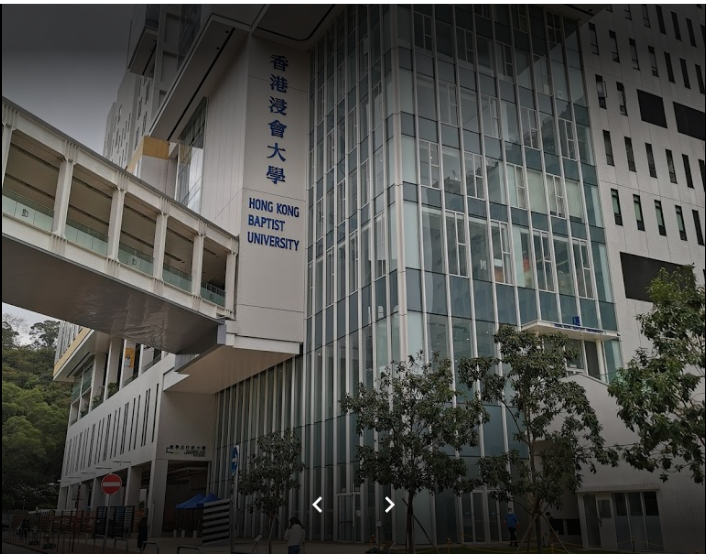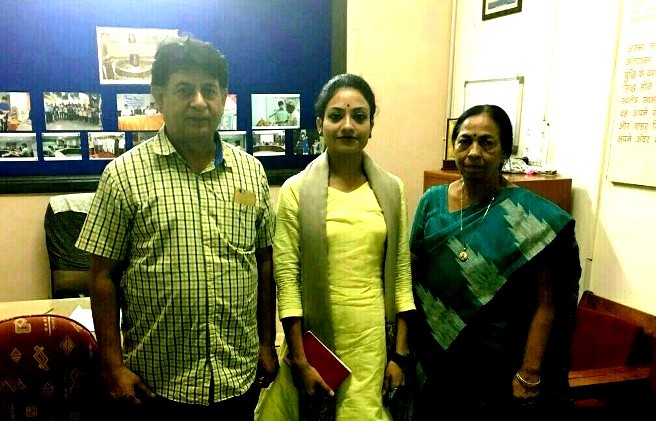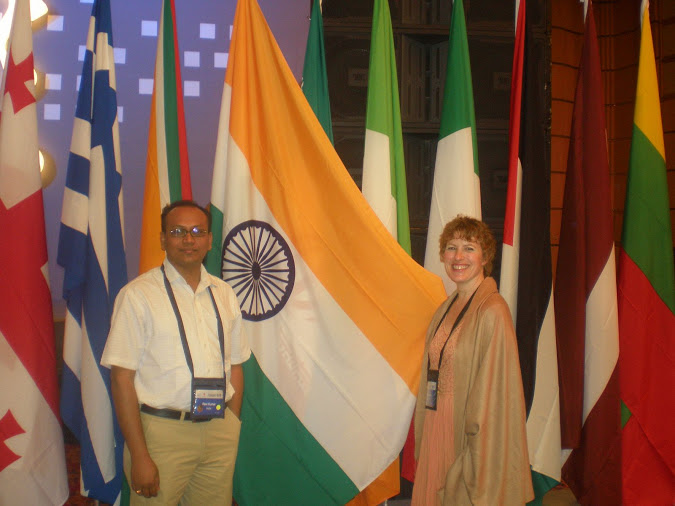Click below icon to Subscribe to Modlingua Channel
Dear Colleague,
FIT Asia has published Issue No. 4 (December 2025) of the FIT Asia Bulletin (attached).
This edition includes event reports and reflections from across the translation and interpreting community, and it’s a great read for language professionals who want to stay connected with what’s happening in the region.
📌 Please read and share it with your networks, colleagues, and fellow language professionals.
✨ Call for Contributions (March 2026 Issue):
FIT Asia is welcoming submissions for the next issue — including:
- Articles
- Event reports
- Upcoming event announcements
- Opinion pieces related to translation/interpreting
If anyone from our Modlingua Language Forum would like to contribute, this is a strong opportunity to share your work and voice with a wider professional community.
Click here to download the FIT ASIA Bulletin
Warm regards,
Ravi Kumar
(Modlingua Language Forum)
WhatsApp Channel: https://whatsapp.com/channel/0029Va5Tm7lKLaHn35QMPQ0Y

Understanding Wikipedia’s Dark Matter: Translation and Multilingual Practice in the World’s Largest Online Encyclopaedia
Hong Kong Baptist University
15-17 December 2021 | Online via Zoom
(Second Call for Papers)
Background
Wikipedia is the world’s largest online encyclopedia. It has 303 active language editions, which were accessed from 1.7bn unique devices during October 2020. Now over twenty years old, the encyclopedia has been studied by academics working within a range of disciplines since the mid-2000s, although it is only relatively recently that it has started attracting the attention of translation scholars too. During a short space of time, we have learned a considerable amount about topics such as translation quality, translation and cultural remembrance, multilingual knowledge production and point of view, the prominent role played by narratives in articles reporting on news stories, and how translation is portrayed in multiple language versions of the Wikipedia article on the term itself. However, translation largely remains Wikipedia's ‘dark matter’: not only is it difficult to locate, but researchers have so far struggled to map out the full extent of its contribution to this multilingual resource. Our aim in organising this international event is to allow the research community to take stock of the progress made so far and to identify new avenues for future work.
Topics
It is thus hoped that the conference will serve as a platform for interdisciplinary exchange on the latest developments in this area. Topics to be considered include but are not restricted to the following:
- Research methodologies (e.g. identifying translated material; exploiting the Wikipedia ‘research ecosystem’; comparing content across multiple language editions; use of digital tools for data collection, analysis and visualisation; sentiment analysis);
- Collaborativity vs. self-motivation among Wikipedia translator-editors, including the visibility of translator-editors on article Talk Pages;
- Theoretical frameworks that have proven valuable for the study of Wikipedia translation (e.g. narrative theory, affect theory, critical discourse analysis);
- The use of Wikipedia in the translation classroom;
- The use of Wikipedia by translation professionals;
- Research ethics and Wikipedia;
- The nature of Wikipedia translation and how it differs not only from other more traditional types of translation but also from other newly emerging types;
- Translation quality in Wikipedia;
- How research into Wikipedia translation contributes to the digital turn in translation studies and/or to digital humanities;
- Interdisciplinarity in research into Wikipedia translation, as well as research into the multilingual Wikipedia that makes no explicit reference to translation issues.
The conference will be one of the main research outputs from a research project funded by the Hong Kong Research Grants Council (https://wikipediasdarkmatter.wordpress.com/). It is organised by the Centre for Translation and the Department of Translation, Interpreting and Intercultural Studies at Hong Kong Baptist University. We believe it will be the first major academic event dedicated to Wikipedia translation and hope that it will provide a strong basis for future collaboration and discussion.
Submission
We welcome proposals for paper and poster presentations in the form of an abstract of no more than 300 words. Please supply names, affiliations, e-mail addresses, and short biographies (around 100 words) for all authors and specify a maximum of six keywords.
Submission deadline (extended): Wednesday 30th June 2021
Notification of acceptance/rejection: Friday 30th July 2021
Submission link: https://easychair.org/conferences/?conf=uwdm2021
Length of presentations: 30 minutes (20 minutes for presentation and 10 minutes for discussion). The language of the conference is English.
Contact
Conference website: https://ctn.hkbu.edu.hk/wikiconf2021
Conference e-mail address: This email address is being protected from spambots. You need JavaScript enabled to view it.
Keynote speakers
Khaled Al-Shehari, Qatar University
Henry Jones, Aston University
Julie McDonough Dolmaya, York University
Jun Pan, Hong Kong Baptist University
Workshop convenors
Mark Shuttleworth, Hong Kong Baptist University
Zhilu Tu, Hong Kong Baptist University
Organising committee
Mark Shuttleworth, Hong Kong Baptist University (chair)
Henry Jones, Aston University
Robert Neather, Hong Kong Baptist University
Min-hua Liu, Hong Kong Baptist University
Jun Pan, Hong Kong Baptist University
Clara Chuan Yu, Hong Kong Baptist University
Programme committee
Khaled Al-Shehari, Qatar University
Esperança Bielsa, Universitat Autònoma de Barcelona
Sin-wai Chan, Caritas Institute of Higher Education, Hong Kong
Venus Chan, Open University of Hong Kong
Yi-Chiao Chen, National University of Singapore
Ali Jalalian Daghigh, University of Malaya
Federico Federici, UCL
Lincoln Fernandes, Universidade Federal de Santa Catarina
Sandra Halverson, Universitetet i Agder
Catherine Hardie, Hong Kong Baptist University
Prabhakar Rao Jandhyala, University of Hyderabad
Henry Jones, Aston University
Ester Leung, University of Melbourne
Julie McDonough Dolmaya, York University
Robert Neather, Hong Kong Baptist University
Maeve Olohan, University of Manchester
Jun Pan, Hong Kong Baptist University
Serge Sharoff, University of Leeds
Mark Shuttleworth, Hong Kong Baptist University
Ulrich Tiedau, UCL
Jessica Yeung, Hong Kong Baptist University
Clara Chuan Yu, Hong Kong Baptist University
Meifang Zhang, University of Macau
Nan Zhao, Hong Kong Baptist University
Chunshen Zhu, Chinese University of Hong Kong, Shenzhen
Shocked to hear the demise of our close friend Marion Boers, the translator who worked hard throughout her life for the upliftment of translators and translation profession. From South Africa, she was our close collaborator and the President of FIT for 2 Terms from 2008 till 2014.
It is a big loss to the translators' community throughout the globe.
Our deepest condolences to the family.
INTERVIEW OF PROF. AMITA SHARMA, PRESIDENT OF THE RAJASTHAN STATISTICAL ASSOCIATION (RAJASTHAN UNIVERSITY)
BY DIDHITI GHOSH
 With the proliferation of employment opportunities, specialization in academics and increasing dynamicity in the individuals' role in society as local citizens in global contexts, we often tend to divide life into several components, each with a special attribute, be it casual, functional, contributory, allied, dependent or independent in-the-making. Many of us refuse to realize whether each of these phases, apart from having a specific goal, also help us achieve any learning potential, enriching us throughout their temporal and spatial journey.
With the proliferation of employment opportunities, specialization in academics and increasing dynamicity in the individuals' role in society as local citizens in global contexts, we often tend to divide life into several components, each with a special attribute, be it casual, functional, contributory, allied, dependent or independent in-the-making. Many of us refuse to realize whether each of these phases, apart from having a specific goal, also help us achieve any learning potential, enriching us throughout their temporal and spatial journey.
Bearing the same notion in its interrogative, Rajasthan University had set up the Department of Lifelong Learning in 1987 to expand the boundaries of knowledge and harbor the institutional resources to all the segments of society, small and large, colorful and colossal. It has been successful in standing by several marginalized and disadvantaged sections through varied interventions and capacity enhancement endeavors in various sensitization and awareness programmes related to universal literacy, gender justice, environment conservation, entrepreneurship development, and leadership skill sets, stress management, guidance programmes for the youth and related aspects. It has also been engaged in conducting English language lessons in rural areas, government schools and urban slums for the needy as well as in initiating e-learning courses for senior citizens.
(In the Photo: Dr. Jayant Singh at Left, Didhiti in the middle, Prof. Amita Sharma at the right)
Earlier in September, Didhiti Ghosh visited the "2nd National Conference on Statistics for Humanities and Social Sciences: Statistics for a Better Future" to present a paper on curriculum design based on learner-educator profiles in academics, organized by the Department of Lifelong Learning (Rajasthan University) and the Department of Statistics (Central University of Rajasthan) and had an opportunity to meet Prof. Amita Sharma, founder-president of Rajasthan Statistical Association and former Head of the Dept. of Statistics (Rajasthan University).
Having recently completed her internship in Modlingua Lifelong Learning Community College, Didhiti couldn't resist delving a little deeper into the activities of the Department of Lifelong Learning and spent some good time jingling through some inquiries and assertions. Excerpts from her interview with Prof. Amita Sharma are as follows.
How will this initiative of the Dept. of Lifelong Learning (DLL) help in shaping the learning opportunities of the students in the future?
Learning, in my opinion, is a continuum ever-expanding in its course of progression. In our everyday lives, we find many students who find themselves in a lot of stress - the same concerning education, employment and the basic confusion arising out of an uncertain future in the midst of an everchanging social construct. People are crazy to get government jobs in place of private employment opportunities and feel an urgent need to complete tasks in very little time. They delve into searching for material profit, devaluing the essence and the importance of forming strong emotional bonds leading to positive human relations.
As a psychologist, you would understand how the concept of lifelong learning and development is intensely intertwined with the notion of framing positive psychological capital and wellbeing in society, which is also an inherent component of the field of Positive Psychology.
I feel that our department is a forerunner of strengthening experiential learning, at the same time helping in conceptual growth among individuals.
What inspired you to be a part of the DLL? How did the notion of forming the same in Rajasthan University emerge?
As adults, I feel that we have the responsibility that we owe to the next generation, and the same also for our own enrichment. This is what is implied in the conception of a society well developed and interconnected, irradiating positive vibes among its citizens. All of this was a major inspiration for me to become an active part of this initiative.
Going down the memory lane further, the DLL took off in 1987 to embed itself with the concept of adult education, imbibing confidence, faith, and responsibility among fellow members helping them to reach goals. Our history started by educating the less educated, organizing classes of yoga and meditation and conducting activities comprising mutual sharing and teamwork where participants discussed their real-life problems, their desires and goals, and their notion on resolving these situations through deliberate milieu matching.
Soon later, the name of the department was changed to what it is now when we realized that education is not only for adults but also for children, and specifying any one of these will perhaps obscure the other. Now it has transformed itself gradually into an evergrowing initiative with participants ranging in age from 15 years to 75 years, who participate in activities of all sorts like seminars, workshops, and various other educational sessions.
How would you define the relationship of lifelong learning and the learning of languages?
I would like to mention a very crucial point here - to me, language learning is a basic unit of society, an incubator to the transmission of intercultural values and a redefiner of the future society, in a sense-to-sense social dimension.
A good command over language increases the communication potential of the individuals, and the same in a mobile society helps them to expand personally, professionally and this contributes to the process of a cohesive nation building. This also plays an important role in working out the nation's resource-capital base, thereby increasing its economic productivity and sociopolitical importance in the worldview.
The sad part is that nowadays with the random and rampant use of AI, our student-professionals-in-the-making are decreasing verbal communication and relying more on automation. We all have to understand that the twin concepts of automation and AI are extensions to human knowledge and not substitutes to it. The society needs cohesion, and to work this philosophy out there needs to be good harmony among the components of human EQ (Emotional Quotient) and machine IQ (Information Quotient).
Would you comment on the role of languages and lifelong learning in fostering entrepreneurship development?
I feel that entrepreneurship is an important skillset which will only be possible once specific skills are developed, and among these skills, the power of good communication is very important. So, both of these, I would say, are two faces of the same coin - language skills help individuals in good communication, and communication is an important part of entrepreneurship development. The latter, on the other hand, helps in nation building and societal mobility.
It is enlightening to know that this initiative of Rajasthan University can play such a magnificent role in shaping the individuals' future in the long run, if steered wisely. On a different note, would you like to say something about the language courses offered in RU?
Although a professor of Statistics, I feel that language itself is a subject with real feelings like that of human beings. I am glad that the RU management offers some prospective language courses in German, Spanish, French, and Russian. Unlike the other language courses offered, the Spanish language is taught by natives and was introduced in 2004, though more students opt for French. RU also offers diploma courses in Indian languages like Sanskrit, Persian and Urdu.
We wish to increase the number of language courses offered in RU and organize seminars on different languages highlighting the various perspectives that pertain to each of them, their culture and their unique thoughts and perceptions. All of this will also be a train to continue our own notion of fostering lifelong learning and development.






